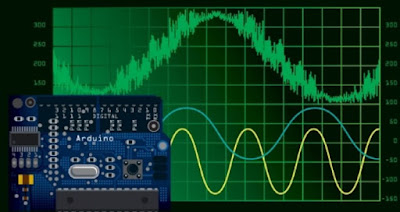Garmin Fenix 5S Fitness Watch
A smartwatch is a computerized wristwatch with functionality that goes beyond timekeeping. While early models can perform basic tasks, such as calculations, translations, and game-playing, 2010s smartwatches are effectively wearable computers. Many run mobile apps, using a mobile operating system. Some smartwatches function as portable media players, with FM radio and playback of digital audio and video files via a Bluetooth or USB headset. Some models, also called 'watch phones', feature full mobile phone capability, and can make or answer phone calls or text messages.
While internal hardware varies, most have an electronic visual display, either backlit LCD or OLED. Some use transflective or electronic paper, to consume less power. Most have a rechargeable battery and many have a touchscreen. Peripheral devices may include digital cameras, thermometers, accelerometers, altimeters, barometers, compasses, GPS receivers, tiny speakers, and SD card (that are recognized as a storage device by a computer).
Software may include digital maps, schedulers and personal organizers, calculators, and various kinds of watch faces. The watch may communicate with external devices such as sensors, wireless headsets, or a heads-up display. Like other computers, a smartwatch may collect information from internal or external sensors and it may control, or retrieve data from, other instruments or computers.
It may support wireless technologies like Bluetooth, Wi-Fi, and GPS. For many purposes, a wristwatch computer serves as a front end for a remote system such as a smartphone.
Smartwatches are advancing, especially their design, battery capacity, and health related applications. Many smartwatch models manufactured in the 2010s are completely functional as standalone products.
Some serve as sport watches, the GPS tracking unit being used to record historical data. For example, after a workout, data can be uploaded onto a computer or online to create a log of activities for analysis or sharing. Some watches can serve as full GPS watches, displaying maps and current coordinates, and recording tracks.
Users can mark their current location and then edit the entry's name and coordinates, which enables navigation to those new coordinates. As companies add competitive products into the market, media space is becoming a desired commodity on smart watches. With Apple, Sony, Samsung, and Motorola introducing their smart watch models, 15% of tech consumers use wearable technologies.
This is a dense market of tech consumers who possess buying power, which has attracted many advertisers. It is expected for mobile advertising on wearable devices to increase heavily by 2017 as advanced hypertargeting modules are introduced to the devices. In order for an advertisement to be effective on a smart watch, companies have stated that the ad must be able to create experiences native to the smart watch itself.
While internal hardware varies, most have an electronic visual display, either backlit LCD or OLED. Some use transflective or electronic paper, to consume less power. Most have a rechargeable battery and many have a touchscreen. Peripheral devices may include digital cameras, thermometers, accelerometers, altimeters, barometers, compasses, GPS receivers, tiny speakers, and SD card (that are recognized as a storage device by a computer).
Wireless Technology
Software may include digital maps, schedulers and personal organizers, calculators, and various kinds of watch faces. The watch may communicate with external devices such as sensors, wireless headsets, or a heads-up display. Like other computers, a smartwatch may collect information from internal or external sensors and it may control, or retrieve data from, other instruments or computers.
It may support wireless technologies like Bluetooth, Wi-Fi, and GPS. For many purposes, a wristwatch computer serves as a front end for a remote system such as a smartphone.
Smartwatches are advancing, especially their design, battery capacity, and health related applications. Many smartwatch models manufactured in the 2010s are completely functional as standalone products.
Despite all that, this new Garmin very well could be the 2017 multisport GPS watch to beat. At $600, this is not a Fitbit or even an Apple Watch; it’s a commitment watch.
Some serve as sport watches, the GPS tracking unit being used to record historical data. For example, after a workout, data can be uploaded onto a computer or online to create a log of activities for analysis or sharing. Some watches can serve as full GPS watches, displaying maps and current coordinates, and recording tracks.
Navigation
Users can mark their current location and then edit the entry's name and coordinates, which enables navigation to those new coordinates. As companies add competitive products into the market, media space is becoming a desired commodity on smart watches. With Apple, Sony, Samsung, and Motorola introducing their smart watch models, 15% of tech consumers use wearable technologies.
This is a dense market of tech consumers who possess buying power, which has attracted many advertisers. It is expected for mobile advertising on wearable devices to increase heavily by 2017 as advanced hypertargeting modules are introduced to the devices. In order for an advertisement to be effective on a smart watch, companies have stated that the ad must be able to create experiences native to the smart watch itself.


